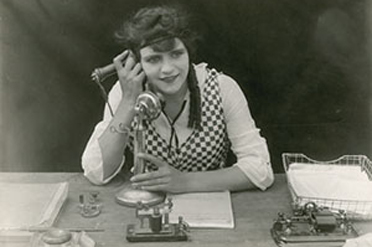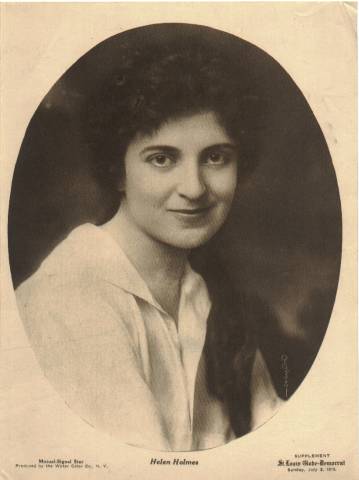A few miles east of Shoshone is Chicago Valley, which began in a startling swindle and ended in fame and fortune for one defrauded victim.
A convincing crook from the Windy City found government land open to entry and called it Chicago Valley. It was a desolate area; the only living thing to be seen was an occasional coyote skulking across or a vulture flying over. The promoter needed no capital other than a good front, glib tongue, and the ability to lie without the flicker of a lash.
A few weeks later, Chicago widows with meager endowments, scrub women with savings, and some who coughed too much from long hours in sweatshops began to receive beautifully illustrated pamphlets that described a tropical Eden with lush fields, cooling lakes, and more to the point, riches almost overnight. For $100, anyone concerned would be located.

Soon people began to swing off The Goose, as the dinky train serving Shoshone was called, and head for Chicago Valley. Among the victims was a widow named Holmes with a family of attractive, intelligent children. One of these was a vivacious, beautiful teenager named Helen.
The Holmes were handicapped because of tuberculosis in the family. This, in fact, had induced the widow to invest her savings.

Herman Jones used to ride by the Holmes’ place en route to the Pahrump Ranch on hunting trips and owning several burros; he thought the Holmes’ children would like to have one. Taking the donkey over, he told Helen, “You can use him to work the ranch too. Better and faster than a hoe….” He brought a harness and a cultivator, and showed her how to use the implement.
It was inevitable that investors in Chicago Valley would lose their time, labor, and money.
Thus when Helen Holmes returned the burro to Herman one day, Herman was not surprised when she told him she was on her way to Los Angeles to look for a job.
“But what can you do?”
“I wish I knew. I can get a job washing dishes or waiting on tables.”
Shortly afterward, he heard from her—just a little note saying she was a hello girl on a switchboard. “Knew she’d land on her feet,” Herman grinned, and having a bottle handy, he gurgled a toast to Helen. He had to tell the news, of course, and with each telling, he produced the bottle.
So he was in a pleasant mood when somebody suggested a spot of poker. To mention poker in Shoshone is to have a game, and in a little while, Dad Fairbanks, Dan Modine, deputy sheriff Herman, and two or three others were shuffling chips over in the Mesquite Club.
Herman had the luck and quit with $700. “Fellows,” he said as he folded his money, “take a last look at this roll. You won’t see it again.”
“Oh, you’ll be back,” Fairbanks said.
But Herman didn’t come back. Instead, he went to Los Angeles, and found Helen at the switchboard. She confided excitedly that she had a chance to get into the movies as soon as she could get some nice clothes.
“Fine,” Herman said. “When can I see you?” He made a date for dinner, had a few more drinks and when he met her he had a comfortable binge and a grand idea. “… Listen, Helen. You wouldn’t get mad at a fool like me if I meant well, would you?”
“Why Herman—you know I wouldn’t,” she laughed.
“I’m a little likkered and it’s kinda personal….”
“But you’re a gentleman, Herman—drunk or sober….”
“I’ve been thinking of this picture business. I nicked Dad Fairbanks in a poker game. You know how I am. Lose it all one way or another. You take it and buy what you need, and it’ll do us both some good.”
The refusal was quick. “It’s sweet of you, Herman, but not that. I just couldn’t.”
“You can borrow it, can’t you … so I won’t drink it up?”
The argument won, and soon theatergoers all over the world were clutching their palms as they watched the hair-raising escapes from death that pictured “The Perils of Pauline”—the serial that made Helen Holmes one of the immortals of the silent films. She died at 58 on July 8, 1950.